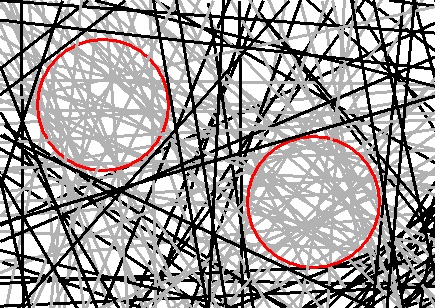Fundamental interactions, such as electromagnetism, the strong force, the weak force, and possibly gravitation, all have something in common: They can be described in terms of relativistic quantum fields, and are clearly the results of interactions between two different kinds of fields. For example, with an electron interacting via the electromagnetic force, one can describe the electromagnetic field using quantum electrodynamics, and an equation of motion can be obtained from the QED lagrangian: $$\mathcal{L}_{QED} = \bar{\psi} (i \gamma^{\mu} D_{\mu} - m)\psi - \frac{1}{4} F_{\mu \nu} F^{\mu \nu}$$ And, the interaction picture here is clear: The electron field ($\psi$) interacts with the electromagnetic field, resulting in its change in motion.
However, with an entropic force (such as the elasticity of a polymer), can the same be done? Can one construct a Lagrangian for the elastic force of a polymer, and is there some sort of "entropy force field" that can act as the relativistic quantum field with which polymer molecules interact? Or is the entropic force not a force at all, just a consequence of the universe tending towards maximum entropy? Or, alternatively, is it possible that every entropic force that exists in this universe is actually a manifestation of one of the fundamental forces (electromagnetism, strong force, weak force, gravity), meaning that the elastic force in a polymer is really something like electromagnetic interaction?

